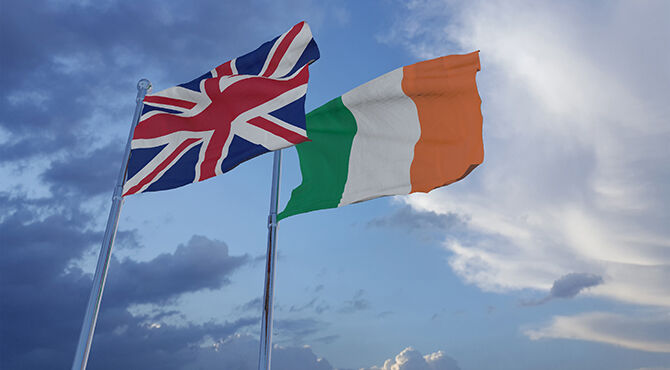The UK and Irish governments are quietly cooperating to prevent overseas workers using the Republic's visa system as a backdoor way of gaining entry into Britain.
The
VICE News organisation has revealed that, last year, 525 people were explicitly refused entry by Dublin solely or partially on the grounds that they might travel on to Britain or Northern Ireland when not meeting UK immigration requirements.
Just over 500 people were denied entry in 2018 for the same reason, with some 40 per cent of the refusals affecting people from either the US or Brazil in both years.
"The role Ireland plays in securing its Common Travel Area (CTA) with Britain, and the impact this has on migrants, is a long-standing but often unscrutinised policy," reported VICE News, which is headquartered in New York.
"The issue has gained prominence since the 2016 Brexit referendum, with questions about how the UK would maintain an open border with Ireland while also 'taking back control' (of immigration), coming to the fore."
Wendy Lyon, an immigration lawyer in Dublin, said that “close to 100 per cent” of people who had previously been refused a UK visa, would probably be refused a visa to Ireland. She said that appeals against such refusals were possible, but that these could take months if not years to process.
While Ms Lyon said it was impossible know what effect Brexit and the UK’s increasingly restrictive approach to immigration, would have on Ireland, she added: “Certainly, if the UK is cracking down on borders, it’s not going to make things easier for people trying to get to Ireland. We can be pretty sure about that.”
The Committee on the Administration of Justice, a Belfast-based human rights organisation, said it had tried to establish how closely London and Dublin were coordinating immigration policies but found “this whole policy area is shrouded in secrecy”.
“The sub-contracting of UK immigration controls to Irish officials is going to be highly politically controversial,” Úna Boyd, the organisation’s Immigration Project Coordinator, told VICE News, “but that does not mean the standards of transparency in a democratic society regarding policy that fundamentally impacts on rights can just be set aside.”
“There is a real issue here with policy being developed in secret without scrutiny and without oversight mechanisms; policy which then has direct and significant impacts on individuals. And, of course, Brexit adds a further layer of complexity.”
Neither the British nor Irish government would say whether or not UK immigration officials had been or would be operating at Irish ports and airports. A spokesman the Department of Justice in Dublin said: “In order to maintain the integrity of the Common Travel Area, co-operation between Ireland and the United Kingdom on matters relating to immigration issues is essential.
"Both Ireland and the United Kingdom may refuse entry for non-EEA nationals on the basis that an individual intends to travel to the other jurisdiction where the individual concerned would not be acceptable for admission in the other State. In deciding on a refusal under these grounds, Irish immigration officials look at all the evidence available before reaching a decision.
“This is a central feature of the operation of the CTA ensuring the integrity of the principles underpinning the arrangement whilst securing the external CTA border. These arrangements will continue post-Brexit."
The Home Office in London stated: “The government has agreed with the EU that the UK and Ireland can continue to make arrangements between themselves with regards to travel under the Common Travel Area, which predates membership of the EU.
“We continue to work closely with Ireland to identify and tackle those who seek to abuse common travel arrangements, including through operational co-operation and data sharing.”
Read more news and views from David Sapsted.
Subscribe to Relocate Extra, our monthly newsletter, to get all the latest international assignments and global mobility news.Relocate’s new Global Mobility Toolkit provides free information, practical advice and support for HR, global mobility managers and global teams operating overseas. Access hundreds of global services and suppliers in our Online Directory
Access hundreds of global services and suppliers in our Online Directory
©2026 Re:locate magazine, published by Profile Locations, Spray Hill, Hastings Road, Lamberhurst, Kent TN3 8JB. All rights reserved. This publication (or any part thereof) may not be reproduced in any form without the prior written permission of Profile Locations. Profile Locations accepts no liability for the accuracy of the contents or any opinions expressed herein.

 11 November 2020
11 November 2020 Access hundreds of global services and suppliers in our Online Directory
Access hundreds of global services and suppliers in our Online Directory






























